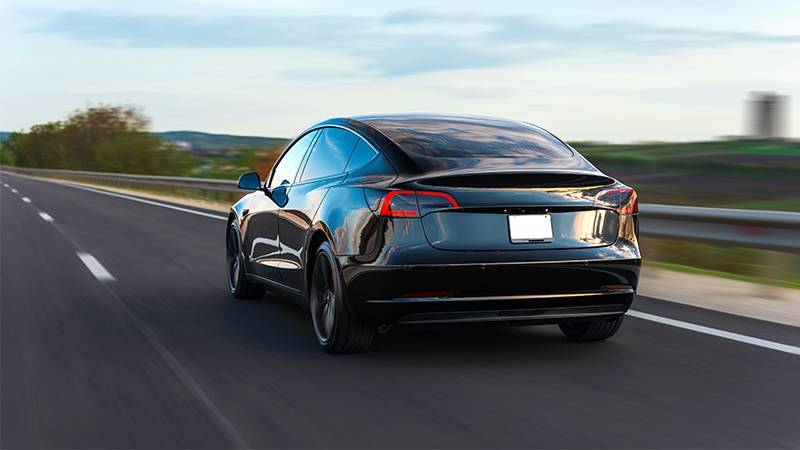Carpooling is more than just sharing rides; it’s a step towards sustainable living. With traffic congestion and environmental concerns on the rise, carpooling offers a practical solution.
This article aims to shed light on how carpooling benefits the environment and provides actionable insights for anyone looking to make their commute more eco-friendly.
Join us as we explore the positive impact of sharing your journey, both for your wallet and the planet.
What is Carpooling?
Carpooling is essentially a shared mobility option where multiple individuals use a single vehicle for their commute, effectively splitting the cost and reducing the number of cars on the road.
It’s a simple, yet effective concept: instead of driving alone, you travel with others headed in the same direction, making each trip more efficient and eco-friendly.
Organizing a carpool can be straightforward. It typically starts with a group of interested individuals who align their schedules and agree on pick-up points, a route, and how to share expenses. Technology has made this easier, with numerous carpooling apps and networks facilitating connections between potential carpoolers.
To participate, the basic prerequisites are simple: you need a reliable vehicle that meets the group’s size and comfort needs, a valid driver’s license (if you’re taking turns driving), and an agreement on how costs and responsibilities are shared.
Communication is key in a successful carpool, ensuring that schedules are coordinated, and any changes or preferences are discussed openly. With these basics in place, carpooling can be a smooth, cost-saving commuting solution, contributing to environmental conservation and a sustainable transportation system.
How Does Carpooling Benefit the Environment?
Carpooling significantly benefits the environment by directly addressing some of the most pressing ecological issues. Primarily, it reduces greenhouse gas emissions. When fewer cars are on the road, the total amount of emissions released into the atmosphere decreases. This reduction is vital in combating climate change and improving air quality.
Moreover, carpooling lessens air pollution. Vehicles are major contributors to air pollutants like nitrogen oxides and particulate matter. By sharing rides, we decrease the number of cars on the road, directly cutting down the pollutants that affect our health and the environment.
Traffic congestion is another critical concern addressed by carpooling. Congested roads lead to increased fuel consumption and emissions due to the idling and stop-and-go traffic patterns. Carpooling alleviates this issue by reducing the number of vehicles on the road, thus enhancing the flow of traffic and reducing overall fuel consumption.
Studies underscore the impact of carpooling. For instance, research indicates that if the average car occupancy increased by just one person, the total number of trips and emissions could be reduced significantly, by up to 20%. Moreover, cities with high carpooling adoption rates witness notably better air quality and reduced traffic congestion, leading to a more sustainable urban environment.
In essence, carpooling embodies the principles of shared mobility and environmental conservation. By opting to carpool, we not only contribute to reducing greenhouse gas emissions and air pollution but also play a part in easing urban traffic congestion. This collective effort is a stride towards a sustainable future, where transportation is efficient and eco-friendly.

How Does Carpooling Impact Your Wallet?
Carpooling significantly eases the burden on your wallet, primarily through shared fuel costs. By dividing the expense of gas among passengers, each trip becomes more economical, directly saving you money.
The benefits extend beyond fuel savings. Carpooling lessens the wear and tear on your vehicle, leading to reduced maintenance and repair costs over time. This means less frequent visits to the mechanic for you and longer intervals between major car services like tire replacements and oil changes.
But the savings don’t stop there. Many cities incentivize carpooling with perks such as discounted or preferred parking, cutting down on parking expenses. Some places even offer carpool lanes, saving time and fuel during busy hours.
Insurance companies may also offer lower premiums for regular carpoolers, recognizing the reduced risk and vehicle wear. Additionally, employers sometimes provide benefits or subsidies for carpooling employees, further promoting this cost-effective commute option.
The cost-saving aspects of carpooling touch various aspects of commuting expenses. From splitting fuel costs and reducing vehicle maintenance to enjoying potential incentives and insurance discounts, carpooling offers a financially smart commuting option, aligning your budget with eco-friendly practices.

More Benefits of Carpooling
Carpooling offers more than just environmental and financial benefits; it enriches your daily commute with social and psychological advantages. The shared journey fosters a sense of community, turning what can be a mundane drive into an opportunity for companionship and conversation.
The networking opportunities are a significant perk. Carpooling can connect you with individuals from different circles, potentially opening doors to professional collaborations or friendships. It’s a space where ideas can be exchanged, and new perspectives shared, all while navigating the daily commute.
Moreover, carpooling can considerably reduce the stress associated with driving. When you’re not behind the wheel every day, you can relax, read, or even catch up on work. This downtime is invaluable for mental well-being, offering a moment of reprieve during busy days.
Additionally, the sense of community that comes with regular carpooling can contribute to a feeling of belonging. Sharing your daily journeys creates a routine of interaction, breaking the isolation that can come with solo commutes. In a world where social connections are invaluable, carpooling adds a layer of social enrichment to your everyday life, turning each journey into an opportunity for connection and camaraderie.

Challenges of Carpooling
While carpooling offers numerous benefits, it’s not without its challenges. One common hurdle is managing scheduling conflicts. With multiple people involved, aligning everyone’s timetable can be tricky. However, clear and consistent communication is key. Utilize carpooling apps or group chats to keep everyone informed and adapt to changes flexibly.
Privacy concerns are another issue some might face in carpooling. Sharing a ride means sharing personal space. It’s important to set ground rules from the start, like keeping the car a phone-free zone or agreeing on topics that are off-limits. Respect and understanding go a long way in maintaining a comfortable environment for all.
Finding reliable carpool partners is crucial. Unreliability can disrupt the schedule and affect everyone’s day. When forming a carpool group, choose members who are known for their punctuality and dependability. Initially, consider a trial period to ensure everyone’s commitment and compatibility.
Flexibility is another essential aspect of a successful carpool. Unexpected events can occur, so it’s important to have backup plans, like alternative drivers or a list of last-minute ride options. This reduces the stress of unforeseen changes and maintains the carpool’s smooth operation.
By addressing these challenges with thoughtful solutions and a cooperative spirit, carpooling can be a highly efficient and enjoyable way to travel. Clear communication, respect for personal space, and a flexible, understanding approach turn potential obstacles into manageable aspects of shared commuting.

Tips On Carpooling
Organizing a successful carpool requires some planning and cooperation. Here are some practical tips to ensure your carpooling experience is efficient and enjoyable:
Effective Communication
Establish a reliable way to communicate with your carpool group. Apps specifically designed for carpooling can streamline scheduling and updates. Regular check-ins ensure everyone is on the same page and can accommodate any last-minute changes.
Flexible Scheduling
While consistency is ideal, flexibility is crucial. Be prepared for occasional shifts in routine and have a plan for how the group will manage changes. It helps to have an agreement on how much notice should be given for alterations to the schedule.
Efficient Route Planning
Optimize your route to minimize travel time and maximize fuel efficiency. Use navigation apps to check real-time traffic conditions and adjust your route accordingly. Consider the convenience of pick-up and drop-off points for all members.

Safety First
Safety is paramount in carpooling. Ensure that every driver in the group has a valid driver’s license and a well-maintained vehicle. It’s also wise to agree on safety measures like wearing seatbelts and avoiding distractions while driving.

Set Clear Expectations
Discuss and agree on things like punctuality, payment for shared expenses, and car cleanliness. Setting clear expectations from the start can prevent misunderstandings and ensure a smooth carpooling experience.
How to Choose the Right Vehicle for Carpooling
Choosing the right vehicle is crucial for a successful carpool. Here are key factors to consider ensuring your carpool is comfortable, reliable, and eco-friendly:

Fuel Efficiency
Opt for vehicles that offer good mileage. Fuel-efficient cars are kinder to the environment and your wallet, especially when costs are shared among carpoolers. Hybrids or fully electric vehicles are excellent choices for maximizing efficiency and minimizing emissions.
Space and Comfort
Ensure your vehicle has enough space to comfortably accommodate all members and their belongings. Adequate legroom and proper seating are important for a pleasant ride, especially for longer commutes.
Reliability
A dependable vehicle reduces the chances of breakdowns and ensures consistent service. Regular maintenance checks are essential to keep the car in top condition, ensuring safety and reliability for every trip.
Safety Features
Prioritize vehicles with a strong safety record. Essential features include airbags, ABS, and stability control. A safe car is paramount to protect all occupants on the road.
For carpooling, vehicles like midsize sedans, SUVs, or minivans are often preferred. They strike a balance between space, comfort, and fuel efficiency, making them ideal for shared commuting. By considering these factors, you can select a vehicle that not only meets the needs of your carpool group but also contributes to a more sustainable and enjoyable commuting experience.
Conclusion
In conclusion, carpooling is a smart, sustainable choice for modern commuters. It significantly reduces our environmental impact and cuts costs, while fostering community.
With proper scheduling, communication, and vehicle selection, carpooling’s challenges are easily navigated. If you’re seeking a positive change in your daily commute, consider carpooling. It’s more than a ride; it’s a step towards a greener, more connected future.


